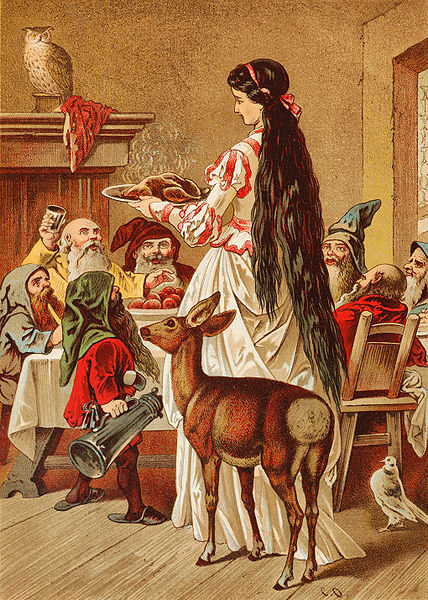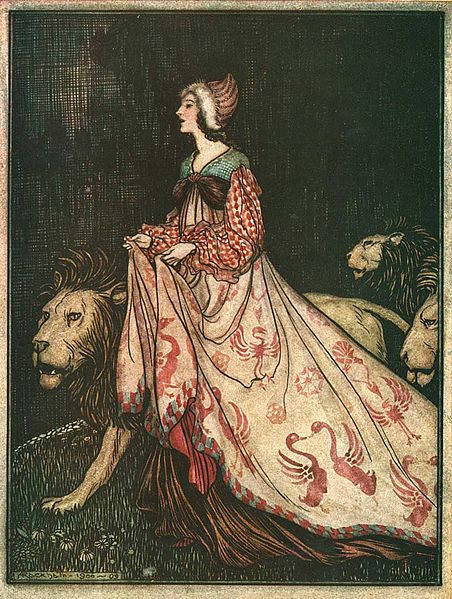
Thammasat University students interested in area studies, political science, European literature, history, the history of ideas, intellectual history, philology, cultural studies, lexicography, and folklore may find a new book useful.
The Brothers Grimm and the Making of German Nationalism is an Open Access book available for free download at this link.
The Thammasat University Library collection includes several books by and about the Brothers Grimm.
The author, Professor Jakob Norberg, teaches German studies at Duke University in Durham, North Carolina, the United States of America. The book is part of the Cambridge Core collection.
Jacob and Wilhelm Grimm, known as the Brothers Grimm, were German researchers in philology, cultural studies, lexicography, and folklore. They published influential versions of such folk tales as Cinderella, The Frog Prince, Hansel and Gretel, Little Red Riding Hood, Rapunzel, Rumpelstiltskin, Sleeping Beauty, and Snow White. Their first collection of folk tales, Children’s and Household Tales appeared in 1812.
Their folk tales are currently available in over 100 translations and have been adapted by filmmakers, especially Walt Disney, in movies such as Snow White and the Seven Dwarfs and Sleeping Beauty.

Professor Norberg writes:
Known today as an iconic collector of folktales, legends, and myths, as a grammarian and dictionary builder, Jacob Grimm was a political figure of his time. Shaped by ideas circulating after the French Revolution, he believed that rule could only obtain legitimacy if it was respectful of an already extant people’s identity; that the people could only be adequately defined in linguistic and historical terms; and that the philologist, equipped with a rigorously achieved understanding of the people’s cultural and linguistic past, could reliably perform its demarcation, even in a situation of competing claims about its extension and territorial home. Grimm was a nationalist in the sense that he believed in the congruence of the political order with the national community, but the notion of a “philologist king” captures his belief in the vital function of disciplinary knowledge for the establishment or restoration of such congruence. The king, Grimm believed, had to be philologically well informed. Grimm devoted his life to scholarship, professed his preference for undisturbed quiet, and admitted that he was relieved not to have to make political decisions. In that sense, the philologist shared the Platonic philosopher’s supposed reluctance to amass power and govern; Grimm, too, had little care for the honors of this present world. He did, however, declare interest in giving rule a proper, even scientific foundation, by making the philological knowledge of the nation the basis of the territorial order. Throughout his life, he repeatedly spoke with confidence about the proper boundaries of nations and did so in a period during which borders in Central Europe were redrawn many times and tiny states integrated into larger units. At the time of Grimm’s birth in 1785, there were several hundred German political entities – kingdoms, electorates, duchies, landgraviates, margraviates, bishoprics, imperial cities – loosely integrated in the patchwork that was the Holy Roman Empire; Germany was a “maze of dwarfish princedoms” or a “confused archipelago of principalities.” In the year of Grimm’s death, in 1863, that number had been reduced to just below forty units, after the dissolution of the Holy Roman Empire; the Napoleonic conquest and reconfiguration of German lands; and the reorganization of the continent’s politics at the Congress of Vienna, which resulted in the construction of a confederation of sovereign German states, the Deutscher Bund. The plethora of principalities had been consolidated into a smaller number of sovereign entities, with two dominant states (Prussia, Austria), seven midrange states (Bavaria, Württemberg, Hanover, Sachsen, Baden, Hessen-Darmstadt, and Hesse), and about thirty microstates or statelets. Grimm’s youth in particular coincided with a period of political volatility and apparent malleability. Areas changed hands several times over short time periods and principalities were conquered, reallocated, restored, or absorbed, and boundaries redrawn.26 The young Jacob and Wilhelm Grimm (1786– 1859) would themselves experience regime changes and political reconfigurations in their hometown Kassel in Hesse, where Jacob, the older brother, worked as a civil servant under more than one ruler. During the brothers’ lifetime, then, the shape and internal organization of Germany did not seem settled once and for all. Jacob Grimm may have had an ambivalent, flickering interest in day-to-day politics, but he was consistently and sometimes passionately preoccupied with the delineation of units for politics in an era during which those units were being redefined. The notion of a philologically informed ruler thus appeared at a particular juncture, when old borders were being erased or revised, and, equally important, traditional feudal and religious justifications of local princely rule were losing their self-evidence. It was in this context that the philologist arrived as a proponent and guardian of a new focus and foundation of politics: the nation, the linguistically and culturally defined people, with its ultimate origin in a supposedly authentic and natural community, the ancient tribe. As the address to the king indicates, the brothers Grimm and most of their fellow nationalists never fundamentally disputed the wisdom and rightness of a strong monarchical government even in the post-revolutionary age of its destabilization and desacralization. They did, however, repudiate the prerogative of kings and lords to seize, purchase, or abandon areas as if they were private possessions, without regard for the nationality of their inhabitants; this was in fact still the attitude of traditional autocrats and conservative thinkers. Like many of their fellow nationalists in early nineteenth-century Europe, the Grimms believed in a new principle of legitimate rule: rulers and ruled should hail from the same cultural and linguistic group, like reign over like, and the king be one among many of the same ethnic kind. Royal regimes, shorn of religious sanctification or private-patrimonial rights, could secure legitimacy only if they recognized and persuasively represented cohesive national communities. As in the letter to the Prussian king, the philologist Grimm ultimately sought to facilitate the marriage of constitutionalized monarchy and geographically bounded nationality. Decidedly not a radical, he stood, he declared to a newspaper just before the elections to the first German national parliament in 1848, for “a free, united fatherland,” but one ruled by “a powerful king,” which meant that he repudiated all “republican desires [republikanische Gelüste].” By means of such a program, monarchy could lend political unity and capacity to the nation, and the depth and dignity of the nation could help renew and revitalize monarchy – within clearly delineated borders. Jacob Grimm and his brother Wilhelm believed that modern rulers would benefit from philological counsel, not exactly on how to acquire and maintain power – the philologist could offer no Machiavellian know-how – but on how to identify and respect the particular and naturally evolved linguistic and ethnic character of populations. Grimm would even go further and demand that the king evince an attachment to one and only one people. Legitimate government was, for him, not first and foremost a matter of a just distribution of goods, protected basic rights, or popular consent, but of a close cultural fit between rulers and ruled. Even if the philologist could not direct the king or tell him how to rule by offering prescriptions grounded in philological expertise, the best king in Grimm’s eyes would be a ruler who was a friend of the vernacular word, emotionally tied to one particular people rather than desiring to rule over many. This king would ideally possess something of the philologist’s intimate knowledge of and love for the Volk, construed as a national community of familiarity and solidarity. Instead of a philosophizing ruler, a ruler with the soul of a philosopher, there would be a philologizing king, a king with the heart of a philologist.

(All images courtesy of Wikimedia Commons)
